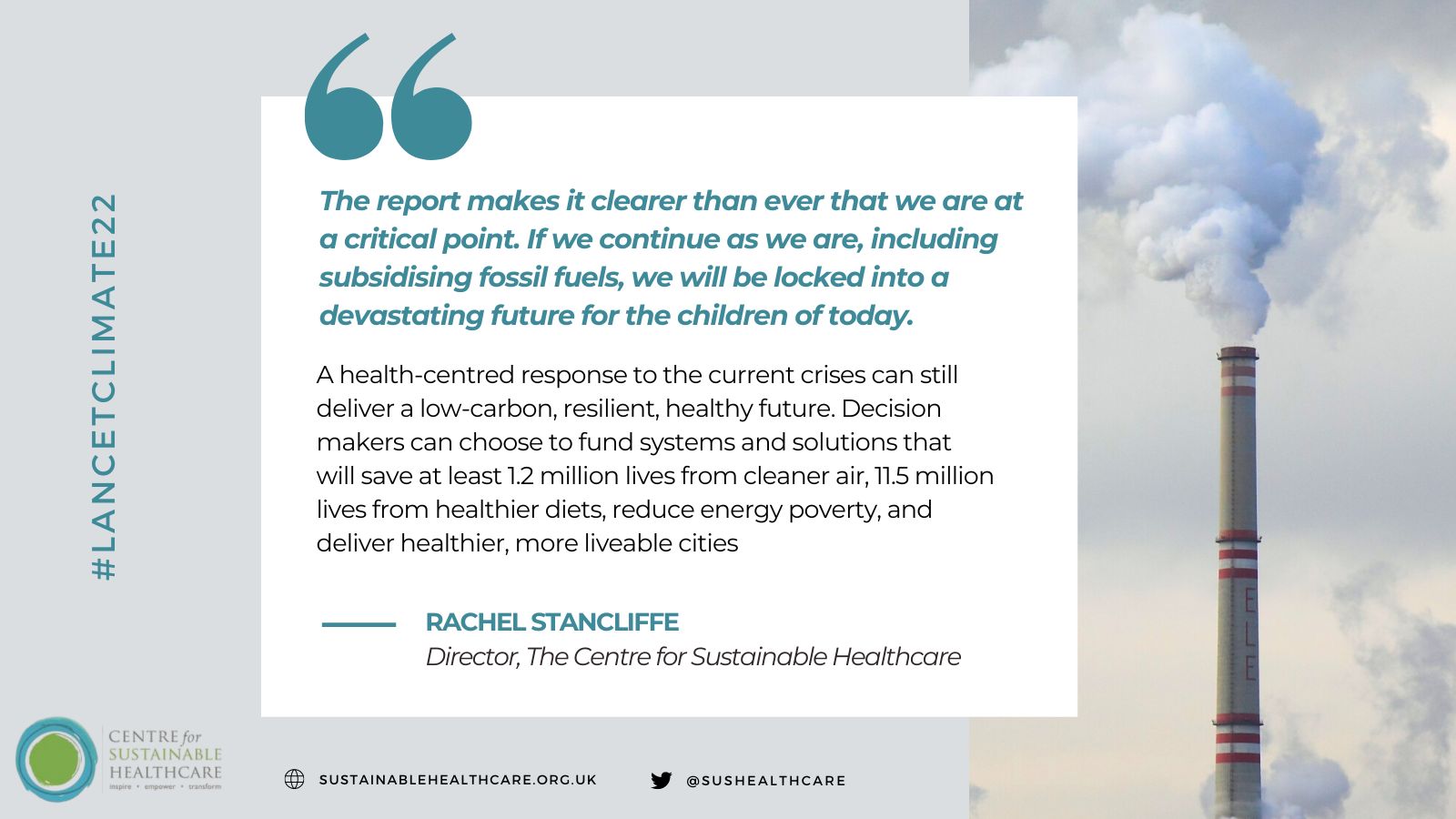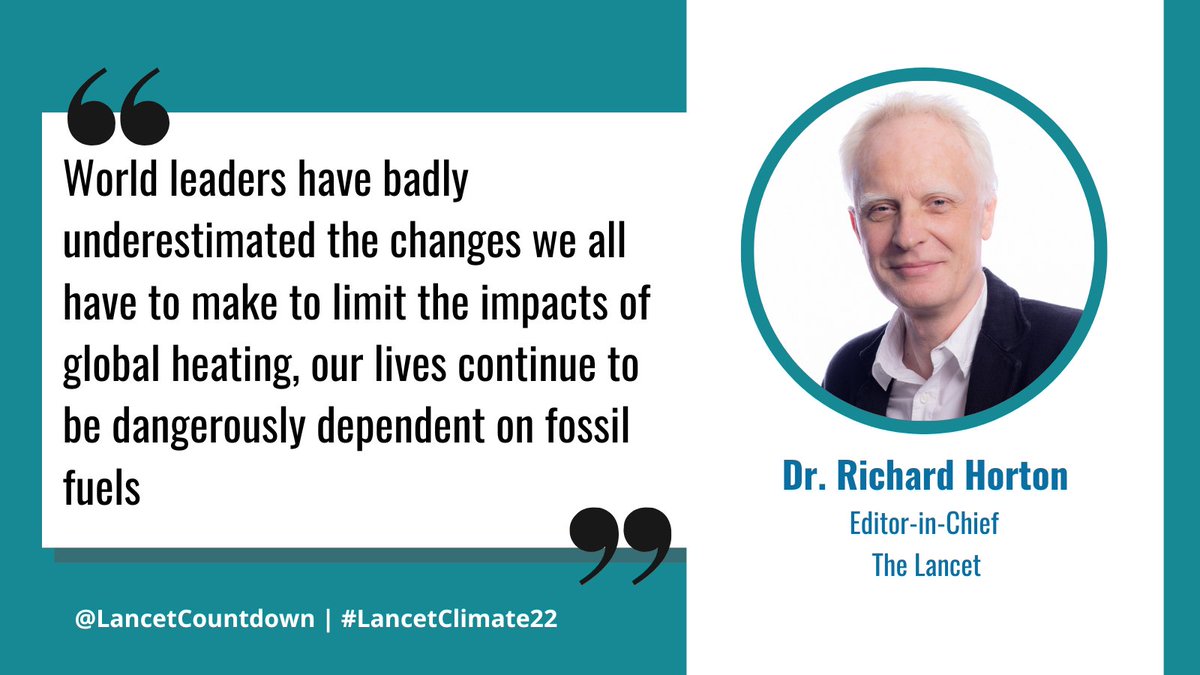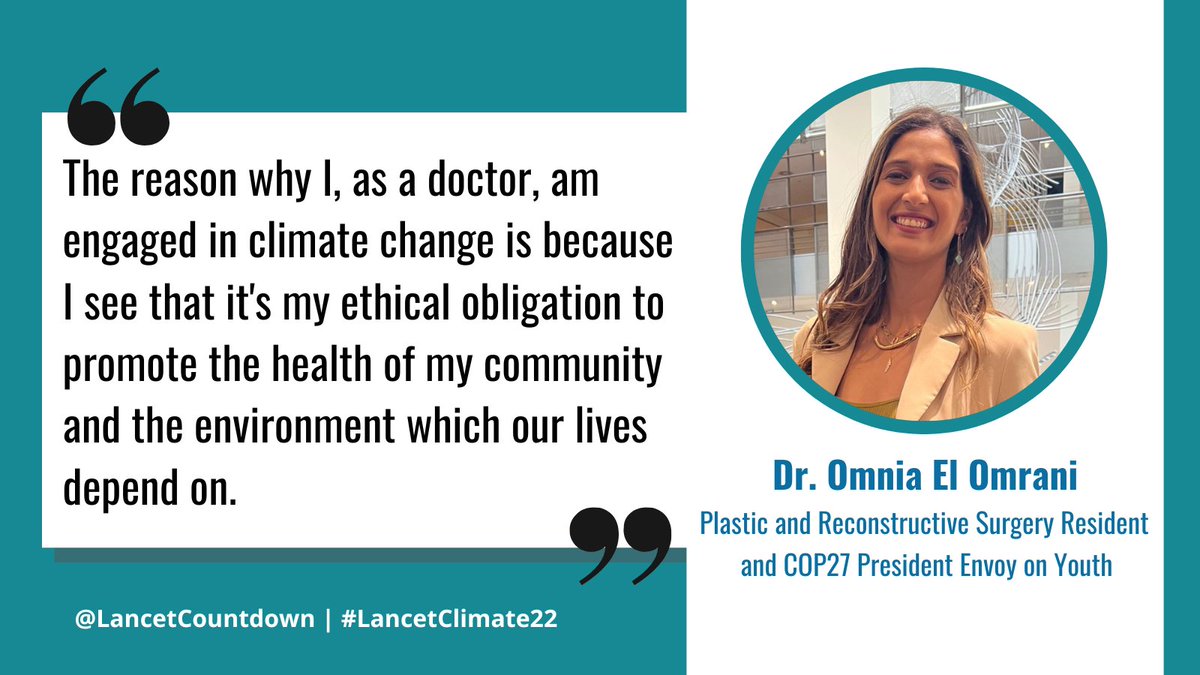The Lancet Countdown 2022 Report is out now
This year's Lancet Countdown report on health and climate change, a collaboration of over 120 leading experts from academic institutions and UN agencies across the globe, warns that "the health of people around the world is at the mercy of a persistent fossil fuel addiction".

In all aspects, the numbers for this year are alarming. Over the previous four years, there has been a 68% increase in heat-related deaths among the most vulnerable populations, namely infants younger than a year and those over 65. In 2021, 470 billion labour hours were lost globally due to extreme heat, a 40% increase from the 1990s. Estimated income and economic losses amount to around $700 billion. The Lancet Countdown report also tracks the fossil fuel system and clearly demonstrates that governments and companies continue to favour the fossil fuel industry to the detriment of the health of the public. It was found that 80% of the 86 assessed governments were subsidising fossil fuels with a total of $400 billion in 2019. In five countries, these subsidies exceeded national health spending.
13 years since the 1st Lancet Commission on climate change and health, @richardhorton1 reminds us to retain a sense of hope #LancetClimate22 pic.twitter.com/Dtelwb5wss
— The Lancet Countdown on Health and Climate Change (@LancetCountdown)
Key messages from the Lancet Countdown Report, 2022:
- A persistent fossil fuel addiction is amplifying the health impacts of climate change, and compounding the concurrent energy, cost-of-living, food, and COVID-19 crises we face.
- Governments and companies continue to prioritise the fossil fuels above, and to the detriment, of peoples’ health, jeopardising a liveable future.
- The world faces a critical juncture. A health-centred, aligned response to the compounding crises can still deliver a future where people can not only survive, but thrive.
What is the impact of climate change on our health system?
Climate change has been identified as the most important health threat of the century. It is affecting the distribution and transmission of infectious diseases - from vector-borne to food-borne, and waterborne diseases. Drier and hotter weather makes it easier for wildfires to spread, touching populations previously safe from such threats. Vulnerable populations are at acute risk of heat stress and stroke, and other adverse physical and mental health manifestations.
The climate and ecological crisis threaten our ability to thrive and survive. But "insufficient climate change adaptation efforts have left health systems vulnerable to climate change-related health hazards".
- 3.7 billion more life-threatening heatwave days in 2021 than annually in 1986-2005
- Transmission of dengue increased by 11·5% for Aedes aegypti and 12·0% for Aedes albopictus from 1951–60 to 2012–21
- Life-threatening exposure fire increased in 61% of countries from 2001–2004 to 2018–2021
- 3·3 million deaths attributable to anthropogenic PM2.5 in 2020 - 1·2 million of which are directly related to fossil fuels
- A low 27% of urban centres are classified as moderately-green or above
- Only 48 of 95 countries have completed a climate change and health vulnerability and adaptation assessment
- The Lancet Countdown Report, 2022
The positive point? The engagement with health and climate change from world leaders has increased since 2020. And the coverage of health and climate change in the media increased by 4.7% in 2021 from 2020, reaching a record high.
Political engagement with health and climate change is essential for implementing a sustainable action plan centered around both people's and the planet’s health. By prioritising health and wellbeing in our country’s governance, and pushing for a more sustainable healthcare system, we have a greater chance to address the multifaceted crisis we are facing today.
In the panel discussion as part of the launch event, the role of frontline healthcare professionals was emphasised – both directly in changing clinical practice, and in advocating for wider changes. Panellists also spoke of the need to integrate climate change in healthcare curricula, and to educate our health staff on the facts of climate change as well as engage them in the solutions.
Dr Omnia El Omrani speaks on our distinguished panel about the effects climate change is having on young people#LancetClimate22 pic.twitter.com/rQi73XOM9A
— The Lancet Countdown on Health and Climate Change (@LancetCountdown)
Are you a healthcare professional concerned about the planetary health emergency?
- Join one of our short courses in sustainability, health and healthcare to learn how to apply theory to practice in your setting
- Connect with others interested in sharing ideas and resource about sustainable healthcare
- Learn about the Sustainability in Quality Improvement framework (SusQI), an approach to improving healthcare in a holistic way, by assessing quality and value through the lens of a “triple bottom line”
- Read about climate change adaptation, and what your role may be as health and care professionals
- Explore the evidence base on green space for health



